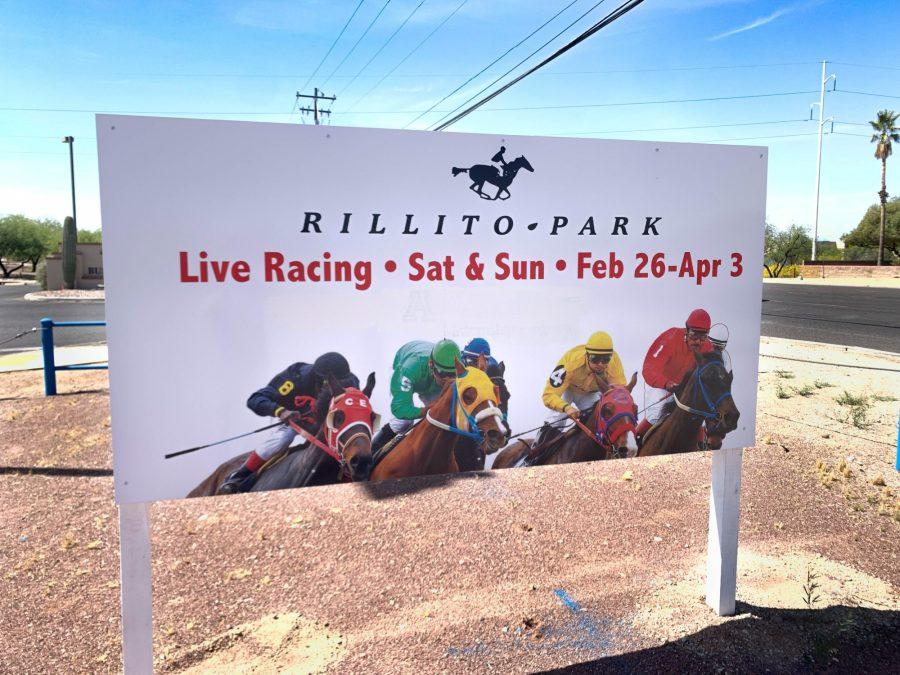Seven racehorses have died this racing season at the Rillito Racetrack, not far from the University of Arizona here in Tucson.
Animal activists from the group SPEAK protested outside the track following the release of the death toll.
Gary Vella is the president of the SPEAK chapter here in Tucson and led the protests alongside other members. Vella has been involved in animal activism since 1989 when he started working in his home state of Michigan. Vella took over the Tucson chapter after its late founder passed in 2019.
SPEAK aims to raise awareness among both the local and national community of horse racing spectators, donors and affiliates.
“Seven killed horses and eight days of racing,” Vella said. “It’s almost unheard of. They shot themselves in the foot right from the start of the season with four dead horses in the first two days of racing. Three more in the following two-week time period after that. It proves our point, but not in the way that we want our point to be proven.”
The seven horses have died in various ways, both while racing and not. Some horses are euthanized after facing life-threatening injuries, while others can die in transport or simply of sudden death.
“Whether or not it happens in a race is irrelevant,” Vella said. “They are pawns of the industry … they weren’t involved in this whole money-making scheme.”
Michael Weiss is the General Manager of the Rillito Racetrack and said that while the deaths of these horses are unfortunate, this is not uncommon in the sport and is not specific to the Tucson track.
RELATED: Where are all the veggies?
“Our record [death toll] over the last seven to eight years is way below the national average,” Weiss said.
Weiss, his staff and their students have enforced an Equine Wellness Program in an effort to maintain the safety of the horses. This is done through annual checkups, new safety features and shared medical history of each of the horses.
Weiss said that there are more positives to the track than not, and while the death of these horses is unfortunate, the track’s ability to bring together the people of Tucson and create this irreplaceable atmosphere is the track’s top priority.
Weiss has also been able to foster the growth of aspiring track affiliates through their Equine Wellness Program, where students can learn about the track and how to maintain the safety of both the riders and the horses.
“I love the sport, and I love what we do,” Wiess said. “It’s just been such a successful program. And that’s what keeps me coming back. I don’t live in Arizona, but I come out there because I love what we do with the students.”
Follow Annabel Lecky on Twitter








